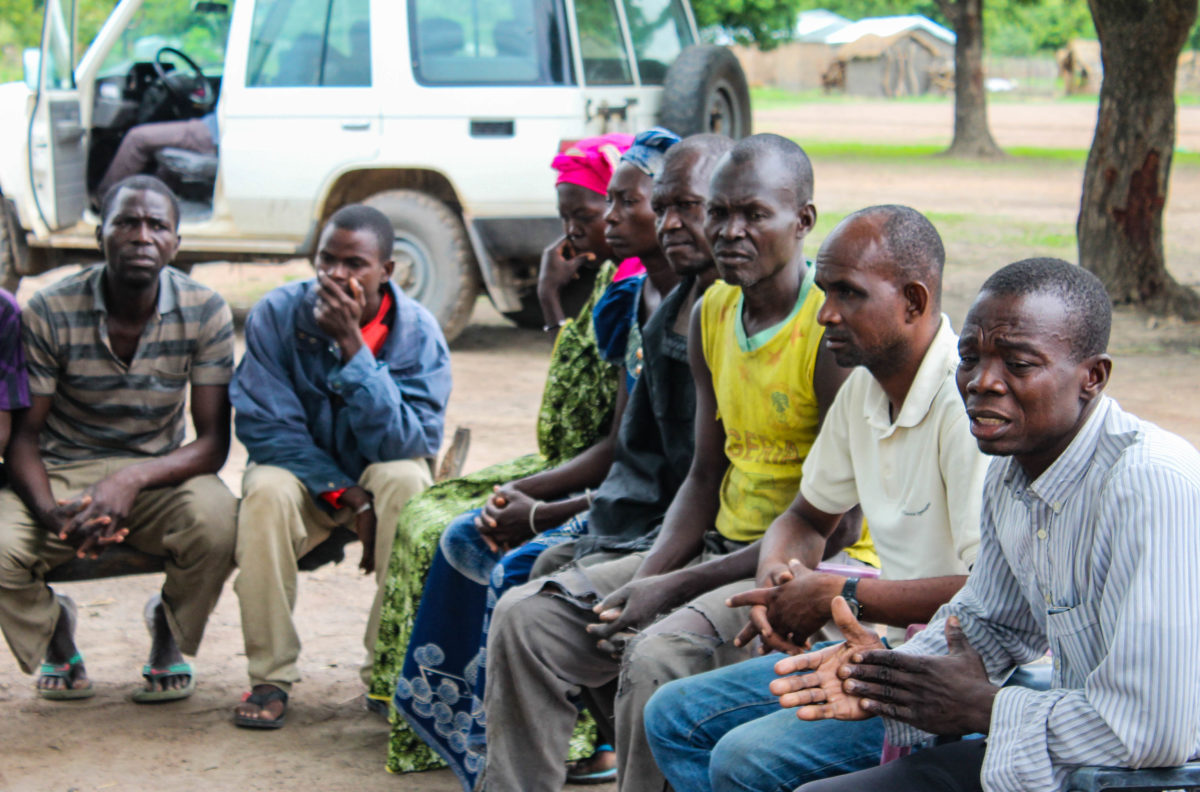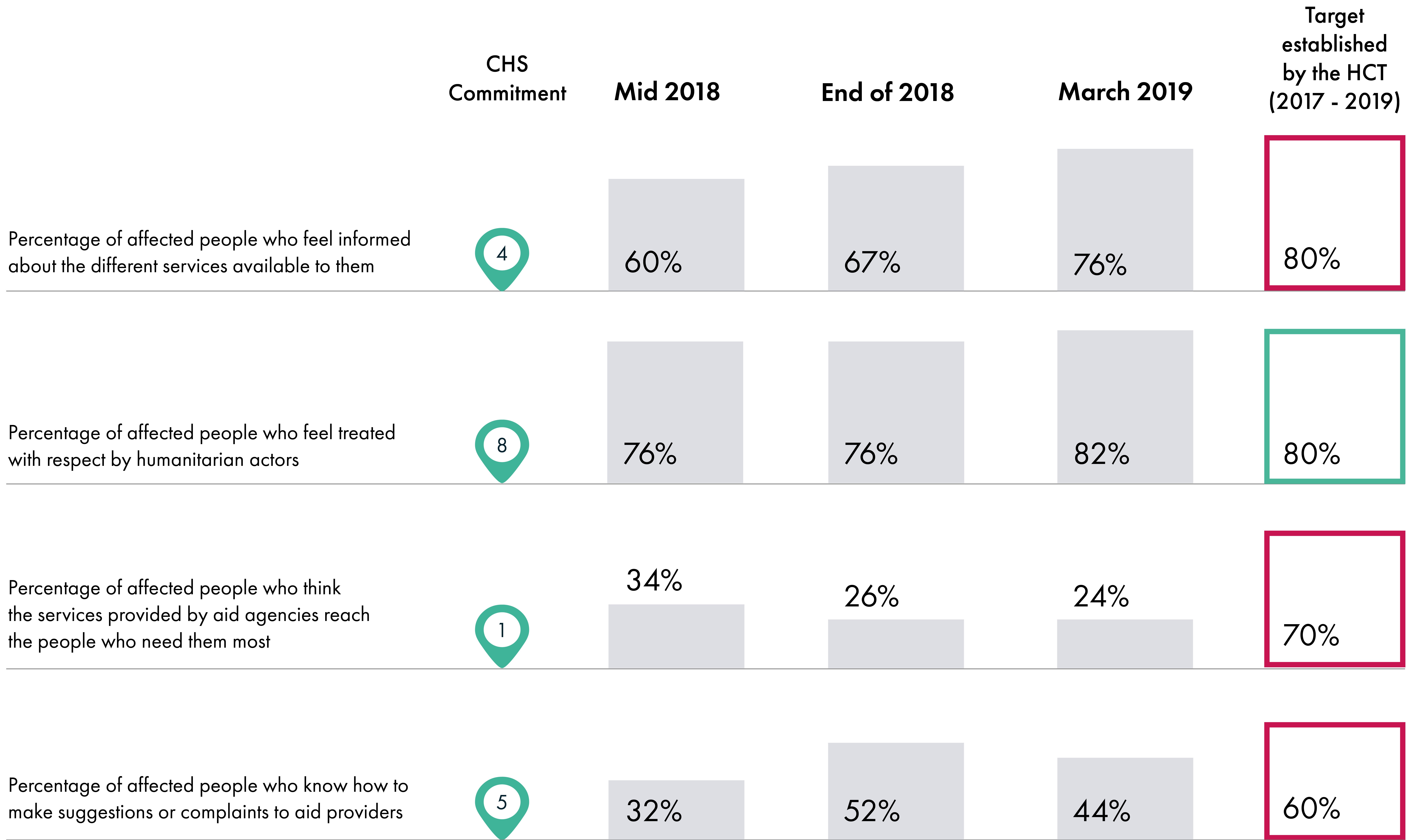Opinion
Strengthening humanitarian accountability in Chad
Guillaume Pocard • 2 October 2019

Six people were killed and dozens injured when riots broke out in a camp hosting South Sudanese refugees in the Ouaddaï province of eastern Chad in October 2018. These protests were driven by refugees’ frustration over the targeting of aid, and the riots effectively brought operations to a halt and prevented humanitarian organisations from accessing the camp for several months.
Dissatisfaction with targeting procedures among affected people is not new; in 2016, an Oromo asylum seeker from Ethiopia died during a protest in front of an aid agency office in Cairo. Incidents like these not only damage the reputations of aid agencies, but also lead to a deterioration in security and trust between humanitarian actors and affected people. What can humanitarian organisations learn from such cases? How can we become better at listening to affected people before such tragedies occur?
Ground Truth Solutions and the Core Humanitarian Standard Alliance, funded by the Swedish International Development Cooperation Agency (SIDA), regularly provide information to the agencies working in Chad about how affected people and humanitarian staff perceive assistance, as well as about the relationship between affected groups and aid providers. Three months before the incidents in Ouaddaï province, Ground Truth Solutions collected its first round of perception data in Chad, including in the locations where the riots took place. At that time, 65% of the affected people surveyed said they were not aware of how aid agencies decide who receives services and who does not. If this kind of information is gathered early on, it can be integral in creating inclusive policy and programming – and ensuring that affected people are consulted throughout the programming stages.
A paradigm shift in accountability
Paying greater attention to the views of refugees, returnees, IDPs, and host communities is increasingly recognised as a key topic for the humanitarian response in Chad. This is driven in part by humanitarian actors’ experiences in places like Ouaddai last year. Beyond simply listening to feedback, humanitarian actors have begun to systematically use feedback in their planning and monitoring of humanitarian operations in the country.
Findings from Ground Truth Solutions’ third survey, based on face-to-face interviews conducted between March and April 2019, are being used for this purpose. The survey findings are based on consultations across three regions in Chad – in Lac, Ouaddaï, and Logone Oriental – with some 1,641 affected people. Following the data over time allows us to track the evolution of affected people’s perspectives over the past two years – data which can then be compared with the targets defined by the country team.

There are signs of progress, with affected people saying they feel better informed about available aid and believe aid workers treat them with respect. The latest findings also suggest room for improvement in some dimensions of humanitarian actors’ performance. Take the issue of participation: only eight percent of respondents say they believe that aid providers take their opinions into account when making decisions. It is high time to increase community leaders’ participation in planning processes and decision-making, using a wider range of communication channels.
Recommendations from the field
These and other findings from the surveys formed the basis for consultation sessions with a wide range of actors – including community leaders, humanitarian field staff, UN agencies, and cluster leads – between June and August 2019. We found that:
- Sector leads should coordinate more closely to enhance accountability at every stage of the humanitarian program cycle. Humanitarian services should be mapped, and perceptions must be monitored systematically.
- Implementing organisations should integrate perception questions into their monitoring and evaluation tools.
- Sector leads should analyse the impact of reduced assistance on affected populations.
What are the next steps?
The example in Chad demonstrates that accountability to affected people need not be a theoretical concept. Humanitarian actors have the tools to integrate their views into every stage of the programme cycle.
A fourth round of data collection is scheduled before the end of 2019 to track humanitarian actors’ progress in meeting the perception targets set for this year. As part of the next programme cycle, the country team in Chad is in the process of establishing a more comprehensive set of targets for the 2020 Humanitarian Response Plan.